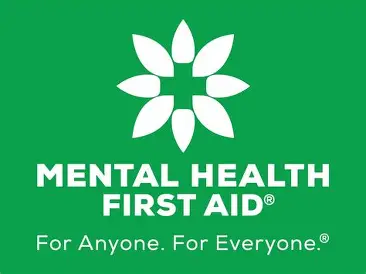Herein this article, we discussed What Is Mental Health First Aid? Why It Matters Now More Than Ever, Key Components of Mental Health First Aid, Transforming Health Education
In a world where mental health challenges are increasingly recognized as critical public health issues, a quiet revolution is reshaping how we think about and respond to psychological well-being. This revolution is called Mental Health First Aid (MHFA)—a powerful, practical, and compassionate approach to bridging the gap between distress and professional help.
What Is Mental Health First Aid?
Much like traditional first aid provides immediate support in a physical health emergency, Mental Health First Aid offers basic, initial support to individuals experiencing mental health challenges or crises. Developed in Australia in 2000 and now practiced in over 25 countries, MHFA is a structured training program that teaches everyday people how to recognize signs of mental illness, respond effectively, and guide individuals to appropriate care.
Why It Matters Now More Than Ever
The world is facing a mental health crisis. Depression, anxiety, substance use, and other conditions have surged globally—especially in the wake of the COVID-19 pandemic. Yet stigma, misunderstanding, and lack of access to care continue to prevent many from seeking help.
This is where MHFA becomes a game-changer. By equipping teachers, parents, co-workers, managers, and students with basic skills in mental health intervention, communities become safer, more supportive, and more resilient.
Key Components of Mental Health First Aid
MHFA courses typically cover:
. Common mental health disorders: Including depression, anxiety, psychosis, and substance use.
. Warning signs and symptoms: Learning how to recognize when someone may be in distress.
. Crisis response techniques: Including how to assist during a panic attack, suicidal thoughts, or overdose.
. Communication skills: Emphasizing empathy, active listening, and non-judgmental support.
. Encouraging professional help and self-care: Helping individuals connect with appropriate resources.
Courses often include role-playing, case studies, and evidence-based action plans, such as the widely used ALGEE model (Assess, Listen, give reassurance, encourage professional help, Encourage self-help).
Transforming Health Education
Mental Health First Aid is redefining what it means to be health-literate. No longer limited to CPR and bandages, health education now includes mental well-being as a core competency. Schools, workplaces, law enforcement agencies, and even faith communities are incorporating MHFA into their training programs.
This shift reflects a growing understanding: mental health is health. By integrating MHFA into health education, we promote early intervention, reduce stigma, and build stronger support networks.
The Impact So Far
Across the globe, MHFA programs are demonstrating tangible positive impacts. From workplaces to schools, universities, and community organizations, trained Mental Health First Aiders are making a difference by:
. Intervening in crisis situations, potentially saving lives.
. Connecting individuals to much-needed professional support.
. Creating more supportive and inclusive environments.
. Increasing mental health literacy across diverse populations.
CONCULSION
Anyone can be a mental health first aider. You don’t need to be a therapist, counselor, or healthcare professional. You just need the willingness to learn, to listen, and to care.
In a society that often feels overwhelmed by mental health challenges, the solution starts with awareness—and action. Mental Health First Aid isn’t just a program; it’s a movement. It’s the new frontier in public health education. And it’s one that could save lives.
Mental Health First Aid is more than just a training program; it’s a movement towards a more compassionate, understanding, and mentally healthy society. As we continue to integrate MHFA into our health education frameworks, we move closer to a future where mental health is prioritized, destigmatized, and every individual feels empowered to offer and receive support when it’s most needed. It’s time we recognize that mental health, like physical health, deserves our immediate attention and proactive care.


